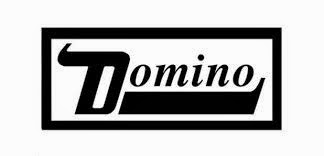YOU TUBE GETS TOUGH
Less than two weeks after I wrote about Google's threat to remove huge numbers of You Tube videos, their strong-armed threat is about to become reality.
(For the background, read this: You Tube Threat To Artists? )
You Tube - owned by Google - has been in the throes of renegotiating contracts with record labels in the wake of the imminent launch of its own music subscription service. Google insists that all labels *agree* to the new terms and conditions for the new service - or face sanctions, including blocking of thousands of videos that have sat happily on the system for some time. Google wants to lock the labels down and call the shots - but the indie labels are resisting saying that they're being offered pitiful payments for allowing their artists' music to go on the new service. An Indie Label spokes person - Alison Wenham has said "This is a grave error of commercial judgement in misreading the market". You Tube's response was carried in today's Financial Times:
"Videos from independents could be blocked in a matter of days if new licenses
are not negotiated"
Wenham - who heads up the Worldwide Independent Network (a key distributor of indie label music) added:
"We have tried and continued to try to help You Tube understand just how important
independent music is to any streaming service and why it should be valued
accordingly"
The three global music labels - Warner, Sony and Universal - have signed up, but there is no doubt with their scale and commercial worth, You Tube will have come to some sort of arrangement with them to smooth the passage to the new model. Even the BPI which represents British record companies - including the three majors - said it was entirely wrong of You Tube to threaten to "ostracise certain independents" bearing in mind that it is the dominant on-line video viewing platform. You Tube claims that many labels have signed up and that the new subscription service is about "bringing new revenue streams for our musical partners". It's likely that as You Tube starts removing videos in the next few days, some of them could well still be viewable on You Tube via services such as Vevo. It's also important to note that individuals and bands posting videos direct to You Tube themselves are unaffected.
But, as I noted last time, a DIY approach reduces the likely impact of record label promotion and financial muscle. You Tube are making a big mistake here, I believe, and although change is inevitable, this does seem to me to be another case of a corporate entity watching the bottom line and not the artistic endeavour.
As the old business saying goes, You Tube is in danger of "knowing the cost of everything and the value of nothing"
Alan Dorey
17th June 2014
"Videos from independents could be blocked in a matter of days if new licenses
are not negotiated"
 |
| Indie labels represented and distributed by WIN |
Wenham - who heads up the Worldwide Independent Network (a key distributor of indie label music) added:
"We have tried and continued to try to help You Tube understand just how important
independent music is to any streaming service and why it should be valued
accordingly"
 |
| Universal - one of three majors to sign up to You Tube's new Terms |
The three global music labels - Warner, Sony and Universal - have signed up, but there is no doubt with their scale and commercial worth, You Tube will have come to some sort of arrangement with them to smooth the passage to the new model. Even the BPI which represents British record companies - including the three majors - said it was entirely wrong of You Tube to threaten to "ostracise certain independents" bearing in mind that it is the dominant on-line video viewing platform. You Tube claims that many labels have signed up and that the new subscription service is about "bringing new revenue streams for our musical partners". It's likely that as You Tube starts removing videos in the next few days, some of them could well still be viewable on You Tube via services such as Vevo. It's also important to note that individuals and bands posting videos direct to You Tube themselves are unaffected.
But, as I noted last time, a DIY approach reduces the likely impact of record label promotion and financial muscle. You Tube are making a big mistake here, I believe, and although change is inevitable, this does seem to me to be another case of a corporate entity watching the bottom line and not the artistic endeavour.
As the old business saying goes, You Tube is in danger of "knowing the cost of everything and the value of nothing"
Alan Dorey
17th June 2014















